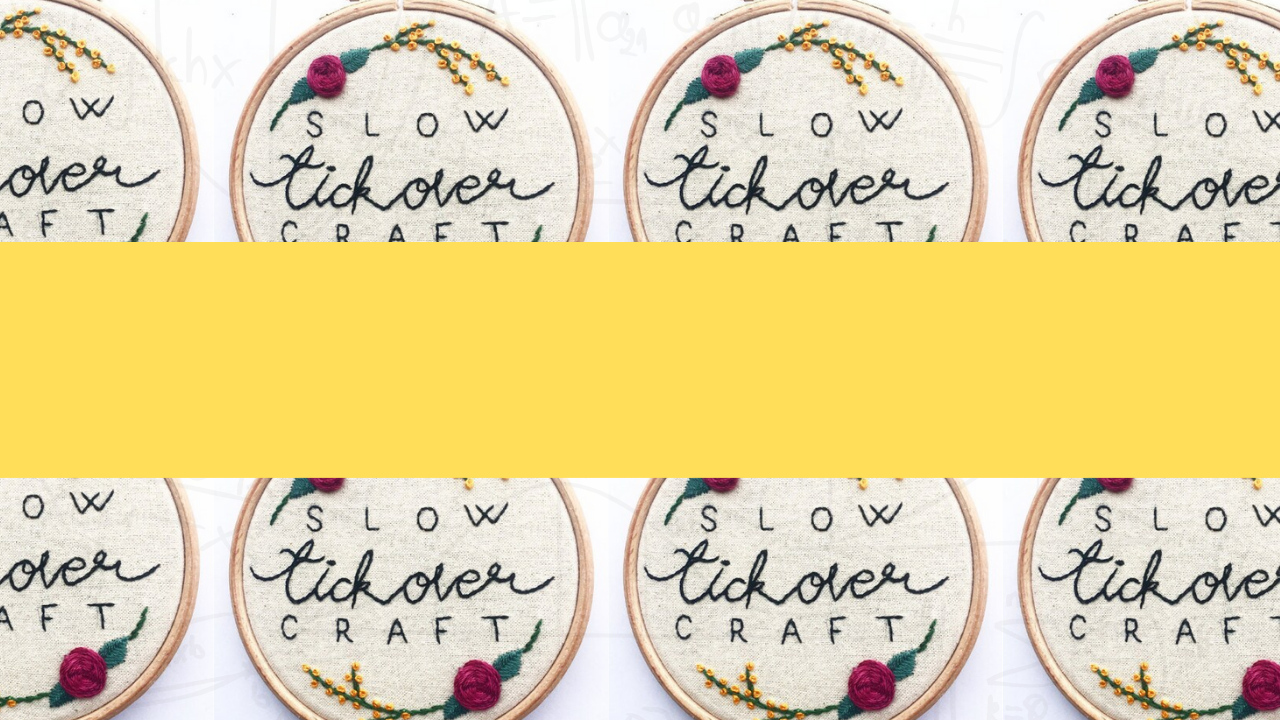We often think of our clothes as things, as possessions separate from ourselves when in reality, they act as a second skin. Your personal style can help you befriend your body and manage your moods, meaning that your choice of outfit can have a profound effect on how you feel. So, to celebrate the power of clothing to help you lean into who you truly are the FiP team have started a new series called #mysecondskin where we’ll be speaking to people from all walks of life about the role that their wardrobe plays in their everyday life. For our tenth instalment, we’re speaking to the founder of @tickover , Bryony Porter.
Bryony Porter
Bryony Porter (she/her) is a seamster, craftivist and visible mender living on a canal boat in South West England. She enjoys using embroidery as a medium to challenge the fashion industry which exists at the expense of both people and the planet. She spreads awareness by posting her embroidery to her Instagram, @tickover, which has racked up a huge following.
Here’s what Bryony had to say when we asked her about her relationship with her own clothing:
1. How do your clothes make you feel?
To be honest, clothes more often than not are just clothes to me. The right fit and style can make me feel great. Sometimes I love to dress up in a more vintage 50s style, rarely now-a-days. Sometimes I’m really proud of my repairs and patches, other times I feel very scruffy and wish that I had a fierce wardrobe. Sometimes I want to throw everything out and buy things that my present self would wear, rather than wearing the things I bought years ago and that have been given to me but aren’t really my style… But that’s never going to happen.
2. What is your most treasured item, that brings you joy?
My most treasured item is this vintage 1950s dress, because its the oldest thing that I own. I love the synched in waist and full skirt. Putting it on after lockdown, I realise it needs a bit of letting out and perhaps a dry clean, that and I need to make an occasion to wear it.
I love the idea that it belonged to someone else before me, where did they go? What did they eat in it? Where has it travelled? And hopefully, when I’m done with it, it will intrigue someone else just as much.

3. Do you believe your clothes are political/ define you in any way?
All decisions are political, including what we chose to buy and wear on our body. Since all clothing is made by human hands, every piece in our wardrobe is connected to garment makers all over the world.
Whilst all deserving of equal rights, dignified working conditions and living wages their individual realties are not often shared. Perhaps the individual that made your jumper is protesting against the military coup in Myanmar? That grew the cotton to make your underwear is fighting for farmers’ rights in India. Against union busting in Sri-Lanka, for the Accord to be extended in Bangladesh, against gender-based violence in Lesotho.
Maybe they have lost their job due to the Covid-19 pandemic and are struggling to feed their family. Or perhaps they have been displaced by the climate crisis, of which the fashion industry has played an enormous part.
4. Has Covid-19 changed your relationship with your clothes?
Whilst my living as a seamster is dependent on garment workers and I see a direct transaction between the clothing made by others that I alter and repair and the food on my table this is a shift in perspective that I have learned through the pandemic.
I was privileged to be furloughed during the lockdowns of the Covid-19 pandemic for many months and this was highlighted by the stark contrast of my living situation and safety and that of others both that lost jobs and that had to make clothes at detriment to their own wellbeing. The pandemic highlighted the fashion industry as a system that was already broken, like nothing else.
Personally being furloughed gave me the space to do more learning, reflection and “activism” than when I’m working my day job although I was desperate to get back to sewing. Generally I wear a minimal wardrobe and repair the hell out of it, since I was practically living in my pyjamas they gained more repairs than usual.
5. What are you planning on buying next?
Right now I don’t think that there’s anything that I actually need. I have limited space on my narrowboat for new clothes and can never throw anything away, no matter how old and patched, so getting new clothes comes at the cost of always stubbing my toe on the drawers that stick out from under my bed that I need to force closed.



